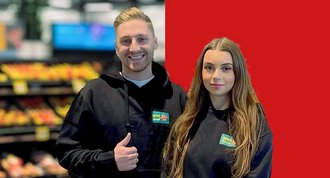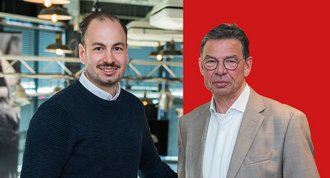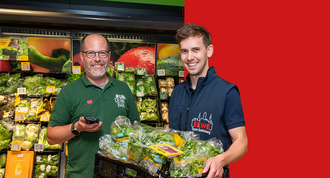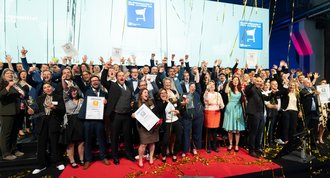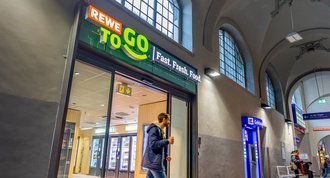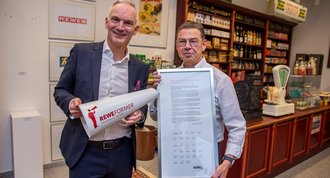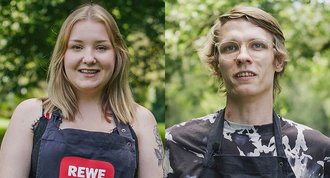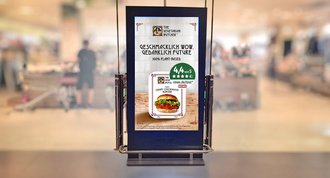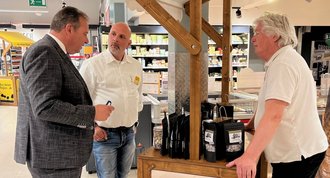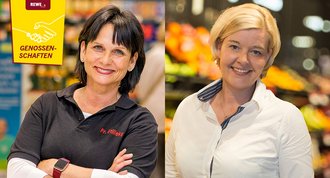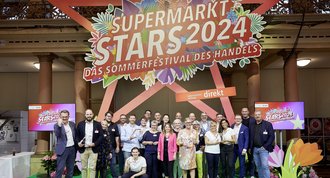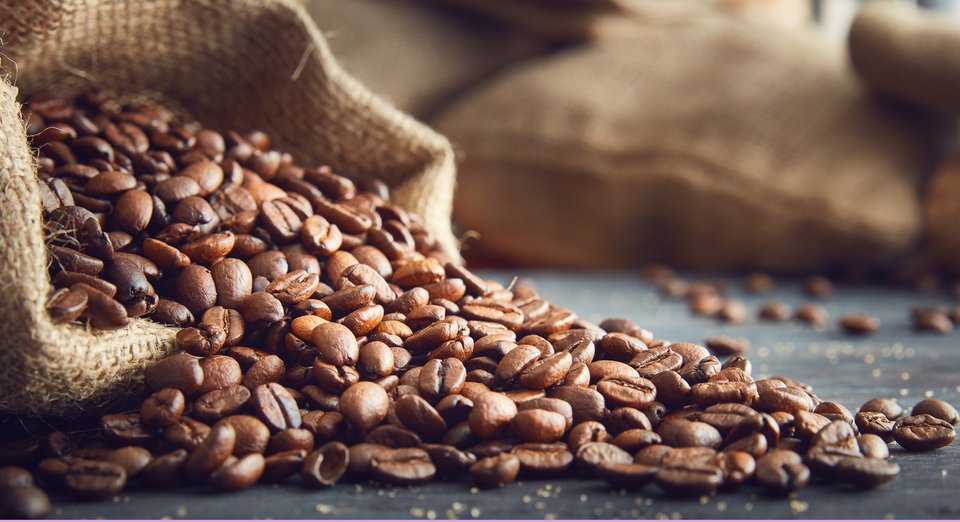
Why whole beans are the trend, REWE favours Fairtrade, Robusta is underestimated - and grimaces are an indicator of bad coffee: An interview with coffee expert Maik Hengsbach from REWE.
one: Mr Hengsbach, what are the current coffee trends?
Maik Hengsbach: The two big trends continue to be whole beans for fully automatic machines and - since the patent on them was dropped - Nespresso-compatible capsules (NCC) in aluminium. Although filter coffee is still the biggest seller, the segment is no longer growing. Many people tend to use the classic filter machine as a second appliance for larger groups of visitors. The fully automatic machine, which freshly grinds whole beans at the touch of a button, is becoming the favourite of coffee consumers, and sales and revenue from espresso and caffè crema beans are growing steadily.
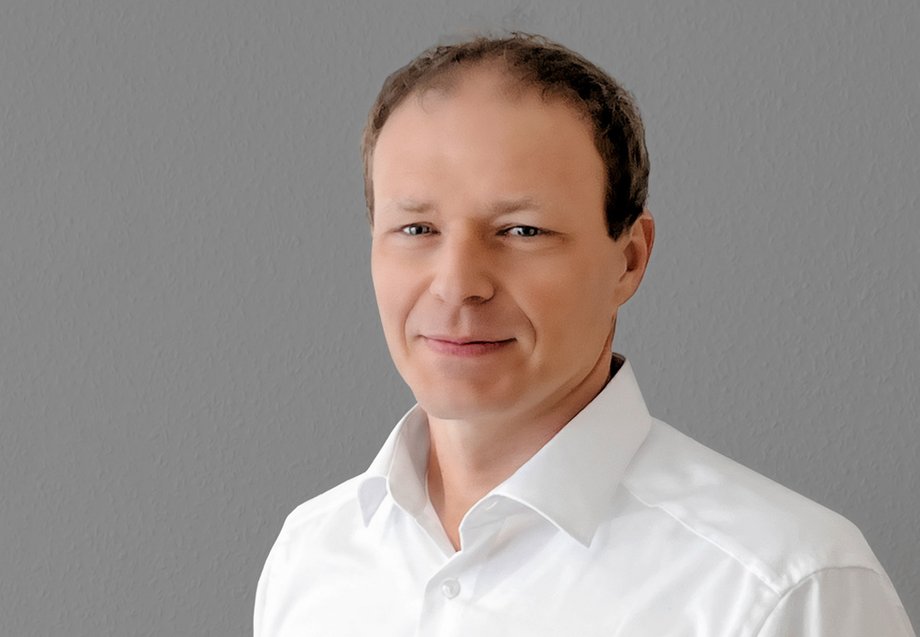 Maik Hengsbach
one: Is filter coffee a discontinued model?
Maik Hengsbach
one: Is filter coffee a discontinued model?
Maik Hengsbach : Filter coffee is still the market leader in terms of sales and revenue, but whole beans are catching up. The total stationary coffee market in Germany amounts to around 4.2 billion euros, of which ground filter coffee accounts for almost a third, and the trend is stable and stagnating. Corona has helped a little because people have been at home and drinking more filter coffee. But Caffè Crema and whole bean espresso together have not only almost caught up with filter coffee, but are also experiencing much greater growth. If this trend continues in a linear fashion, you can work out when the two will have overtaken filter coffee.
one: How do these trends influence shelf placement?
Maik Hengsbach: In terms of product placement, this means that I adapt the shelves to reflect these trends accordingly. The space for filters remains stable or is slightly reduced, we are expanding Caffè Crema and espresso whole bean and also the NCC capsules, which are on the rise. Today, customers decide which coffee to buy based on their machine. They then look for their favourite variety based on taste or price. This means that a clear shelf structure, as we recommend, helps consumers enormously in the market - we segment cleanly into filter coffee, whole beans, single-serve systems, i.e. pods and capsules, and instant coffee. This means that we approach the product via the respective coffee machine or preparation method - so nobody has to search for items that they are not familiar with.
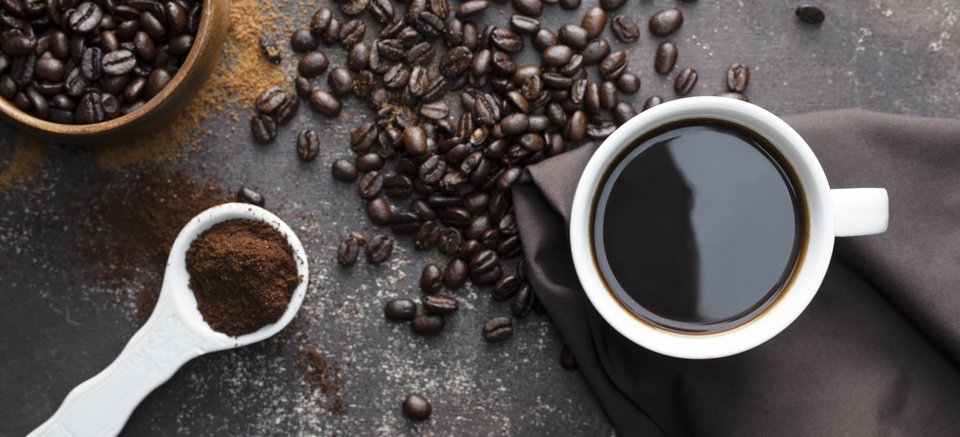
one: Food prices are rising. Does this also apply to coffee, and if so, why?
Maik Hengsbach: The current commodity price trend is basically based on last year's frost in Brazil, which - followed by a drought - led to massive damage to the coffee plants. As a result, the harvest prospects for the next few years have been revised downwards, especially in Brazil. As Brazil has a leading role as the most important coffee producing country, this has an impact on the market price and therefore on virtually all coffees worldwide. In addition, the coffee market is also suffering from the global problems in logistics (keyword: container freight market) and is still suffering from the consequences of coronavirus. Infections among workers on the plantations, in logistics, in the coffee processing mills and in the harbours have massively disrupted processes and cost structures. Speculation is also fuelling the situation and thus prices on the stock exchange.
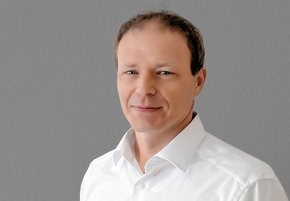
„In line with REWE Group's coffee guidelines, there are no longer any products among our own brands that are not certified. At REWE Feine Welt, we also work together with cooperatives, for example for our Incahuasi Crema made from Fairtrade-certified organic beans“Maik HengsbachSenior Category Buyer
one: What role does Sustainability generally play when buying coffee?
Maik Hengsbach: Sustainability has also become an integral part of coffee, and you can take a good look at certificates such as Rainforest Alliance or Fair Trade. In line with REWE Group's coffee guidelines, there is no longer a product among our own brands that is not certified. At REWE Feine Welt, we also work together with cooperatives, for example for our Incahuasi Crema made from Fairtrade-certified organic beans. And among our REWE Bio Pads, we have now established a "women's coffee" that comes from a coffee co-operative run by women in Peru. Generally speaking, it can be said that organic or Fairtrade coffee is not yet the mass market, but the proportion of Sustainability is increasing - and with it the farmers' yields.
one: Whether organic or conventional, what actually characterises a good coffee and how can I recognise it?
Maik Hengsbach: First and foremost, good coffee is a matter of taste and there's no arguing about that. The most common types are Arabica and Robusta beans. The classic "100 % Arabica coffee" is more expensive and is often used as a sign of quality. However, a good espresso is more likely to be made from a good blend of Robusta and Arabica, as Robusta provides that certain "oomph", the typical flavour and the necessary bitter note.
Most types of coffee - except at REWE Feine Welt - are a blend from different countries of origin, such as Guatemala, Costa Rica or Brazil. Each coffee bean has its own character and you end up with a certain flavour profile. One person likes this flavour, another that. Everyone has to try it out for themselves. For me, a coffee has to taste clean, appealing and round. You shouldn't have an unpleasant feeling or grimace, because then something is wrong.
Maik Hengsbach, Senior Category Buyer, loves drinking REWE Feine Welt Incahuasi Caffè Crema because it is "organic and Fairtrade - and has a great flavour".

